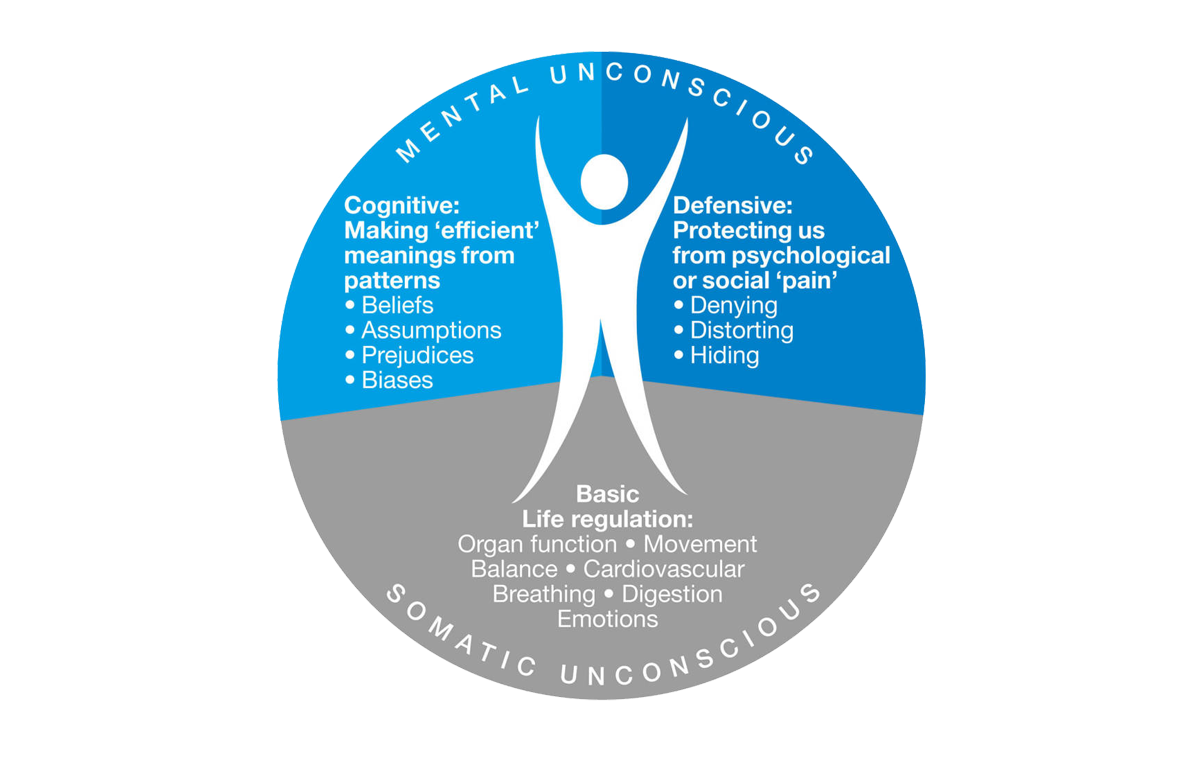Hidden motives & the Emergent Unconscious
Many of us associate ideas about the unconscious with Freud’s pioneering studies and theories. Most of us, for example, have heard about Freudian slips, repressed wishes and messages contained within our dreams. However, our current understanding of the unconscious is more expansive and in our work and research at the Dialogue Space we refer to this larger terrain as The emergent unconscious.
The emergent unconscious offers two areas for exploration. The somatic and the mental. The somatic unconscious relates to bodily experiences, and the mental unconscious relates to feelings and thoughts that operate out of awareness. The mental unconscious can be subdivided into a) cognitive processes concerned with making meaning out of experience and forming assumptions and beliefs that guide our actions and b) defensive processes that hide, distort or deny feelings and thoughts that we cannot own because our sociocultural environment rejects or deems them unacceptable.
Although our unconscious processes are very efficient and capable, there are good reasons why we may wish to become aware of some of them. One reason is that our unconscious makes mistakes and if we are unaware of these mistakes we may start to feel, think and do things that are inaccurate, unfair and harmful to ourselves and others. Our assumptions and opinions about others are fertile ground for mistakes and deeply influenced by unconscious beliefs. A colleague may unconsciously believe, for example, that black people are lazy – an idea that his mother unintentionally conveyed when she made up bedtime stories involving a much-loved golliwog rag doll. This unconscious belief influences him when he is recruiting new staff and appraising performance, yet he is unaware that his actions are biased.

Another reason is that our unconscious contains intelligence that could, if we were aware of it, be very useful to us. Understanding how it makes mistakes is one thing but tuning in to the wisdom of our unconscious body and mind – as we shall discover – gives us a rich store of inherited and hidden knowledge to apply and benefit from.
At the Dialogue Space we encourage clients to engage in depth coaching and development and to experiment with practices that enable them to reveal some of their unconscious motivations.